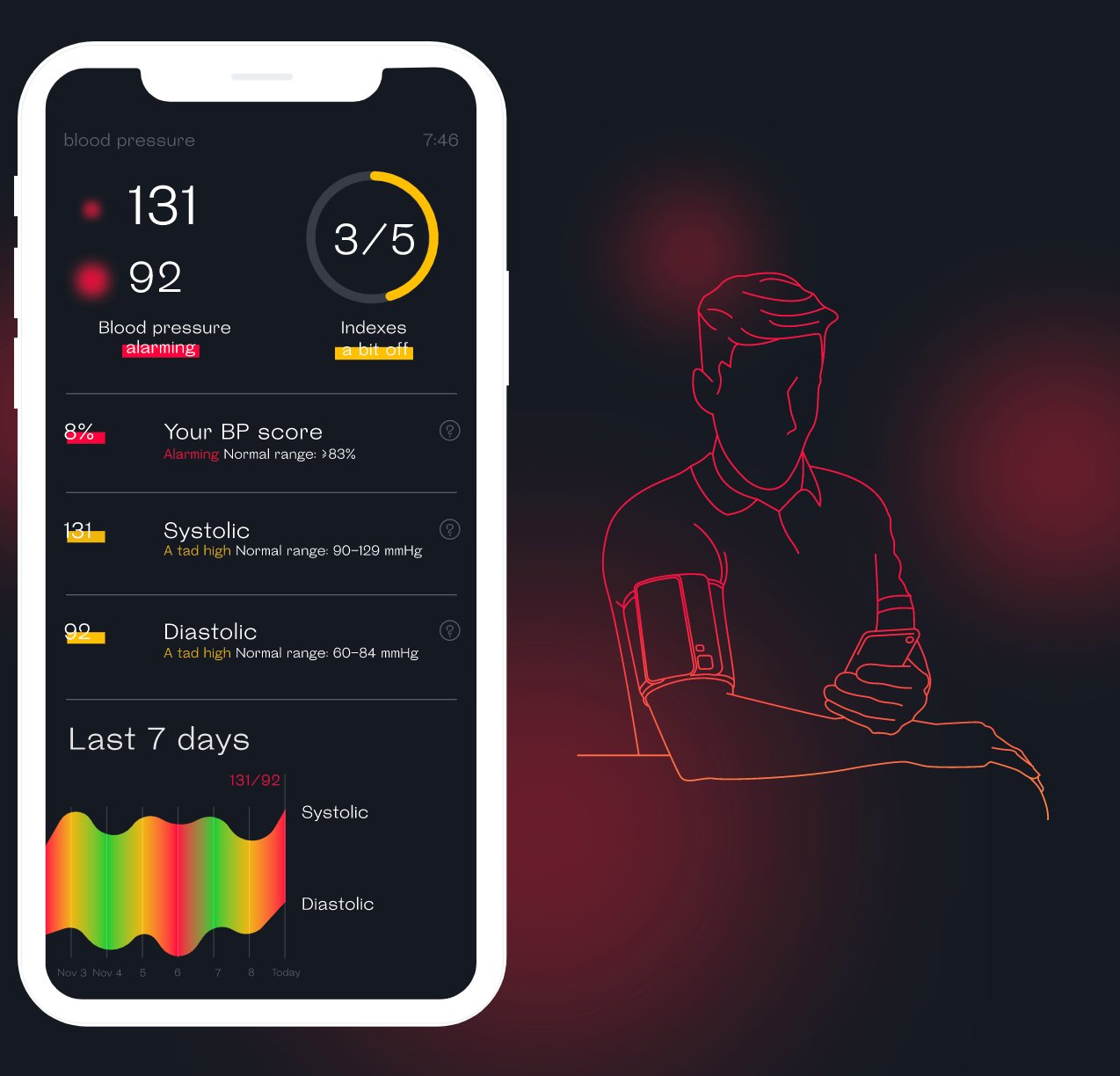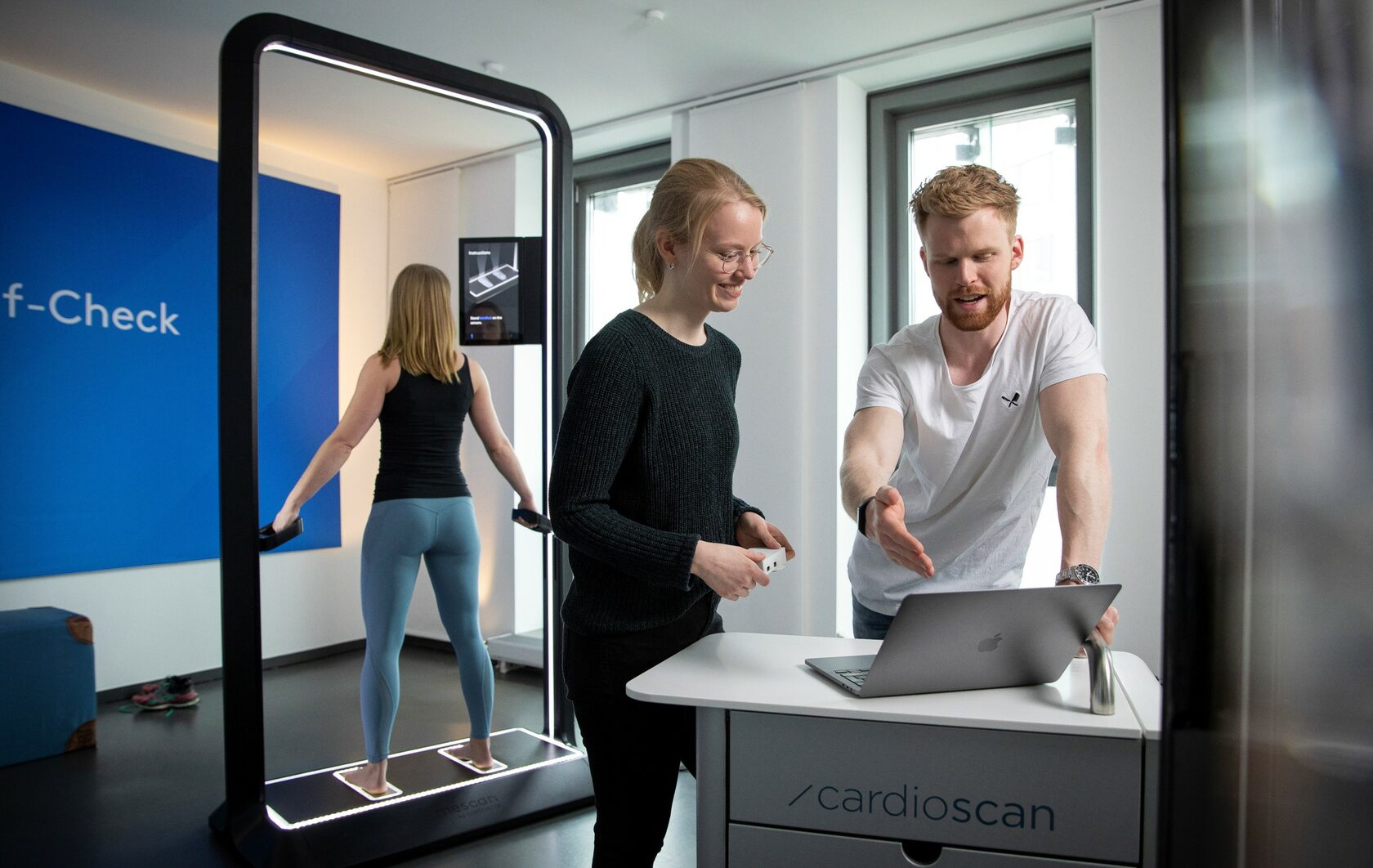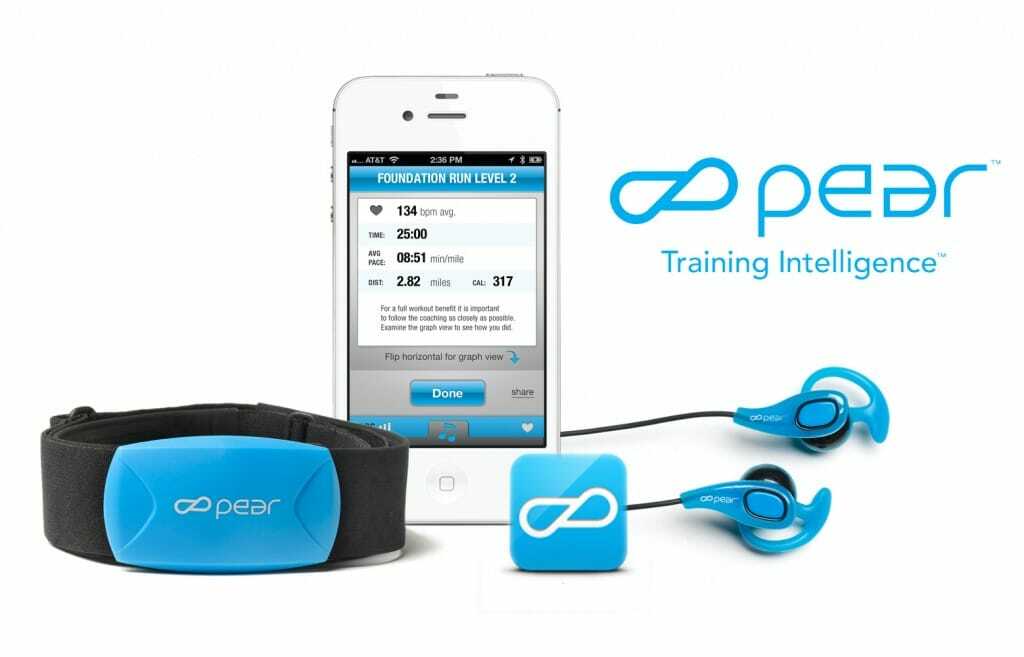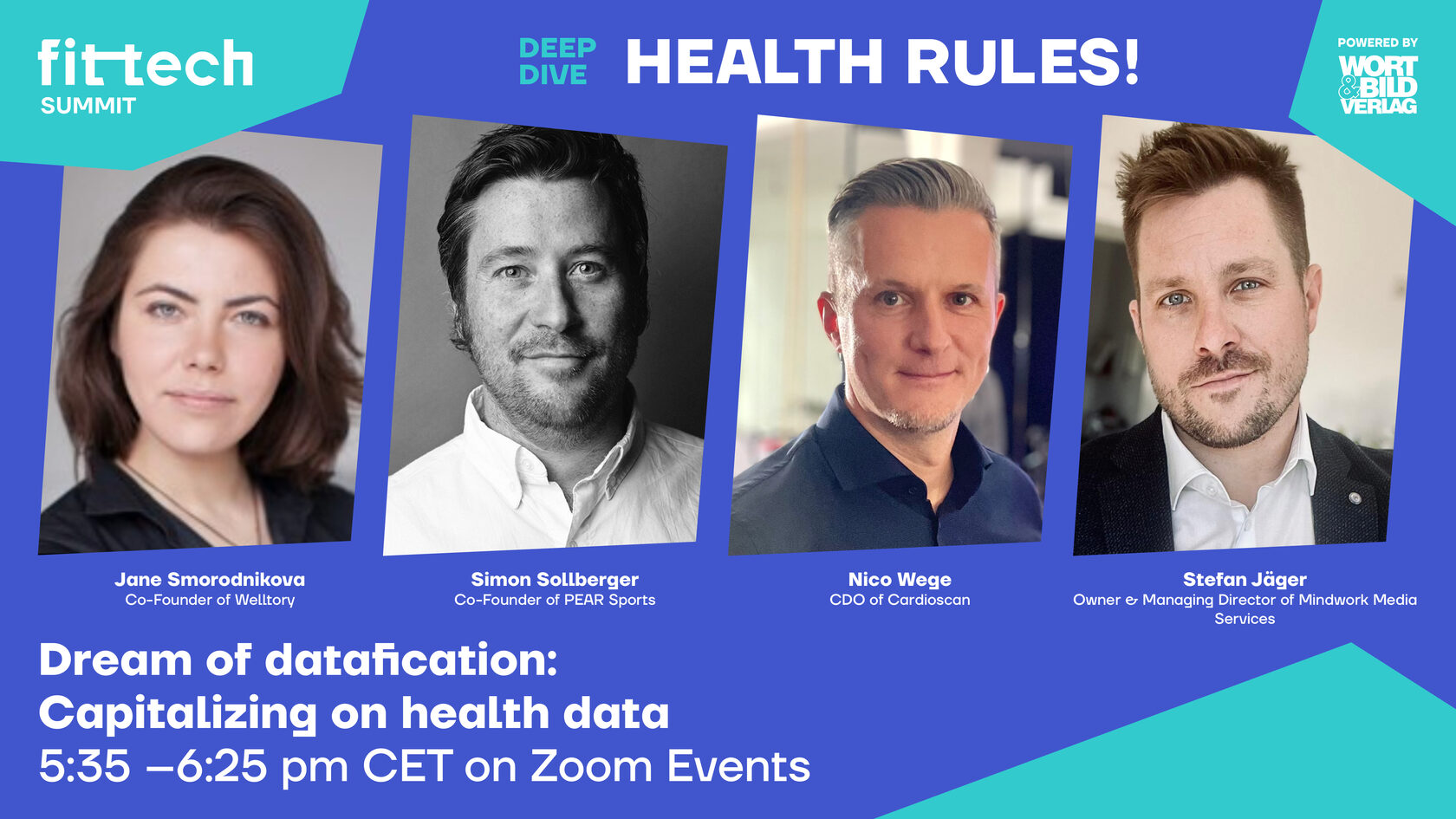The global market for wearable health devices was estimated at $18.1 billion in the year 2021 and is projected to grow at a rate of about 60%. How will health & lifestyle data go from a "cool thing to have" to actually getting better fitness and health results for gym-goers and consumers?
Jane Smorodnikova, you are the founder and CPO of Welltory. What's the vision behind your solution?
Jane: We are trying to make sense of health data. We have more than 1000 apps and gadgets out there. We try to get all the data and to understand: What does it mean? Not only that, but we put it into some model like your health behavior. Then, we use this data to interest people in keeping in touch with their body.

(👁️ Check out Welltory)
Nico Wege, your company Cardioscan, where you work as a chief digital officer, has been around for more than 20 years. How do you influence people's life?
Nico: We develop smart health screening solutions to make health and body data visible. We use this body data to create individual recommendations for training, nutrition and regeneration. To put it in a nutshell: We use health data to make your training work.

(👁️ Check out cardioscan)
Simon Sollberger, you're the co-founder of PEAR Sports. What do you describe as a personalized, adaptive digital fitness and wellness coaching solution? What is it really?
Simon: We are a smart coaching platform, and we've been around for a couple of years as well. Our mission was to make this big shift from dumb fitness and health to smart fitness to put evidence based mechanisms underneath.

(👁️ Check out PEAR Sports)
When we talk about fitness data, it sounds rather sophisticated, complex and theoretical. How could fitness data influence your own life, your grandmother's life, or your children's life to actually become healthier?
Jane: To give you one example: We looked at software developers, and they found that the quality of their code actually depends on their running schedule. We can show them these correlations, and they change their health behavior - but not because of health risks, but because of their career. It's the combination between fitness and performance data. It shows people the whole picture and different insights about what is going on with them.
Nico: My children stay fit while having fun. They don't need health data as motivators. But we, the adults, we need them. Health data is one of the biggest motivators, because we are not playing anymore. We are making a work-out, but work is not fun at all. So we have to bring the motivation back. This is what we are doing at cardioscan.
What were your biggest misconceptions about the health data market so far?
Jane: When I started the company, I saw that everybody is interested in healthy people, people are interested in health and employers are interested in healthy employers. But most people don't care about their health at all, they just live with it. But you still need to find a way to make them to care about their health. My core audience are the majority people who are not having any medical conditions and who are not very health conscious. We chose this target group because it's the people you need to engage if you want to make an impact on preventive health.
Simon: Health and wellness is very emotional, even though most of the time we present it in charts, graphs and numbers. We need to make people feel something. Just receiving data from trackers is not going to make me feel anything. In exchange, we need to give users insights. We need to let them participate and demonstrate awareness. With the help of that, we can demonstrate that we care for them, that we are there for them. That's really how we start leveraging data - with smart engagement.
Nico: There's a very big risk to lose the focus on your core competence because so many things in health are related to each other - training, nutrition, regeneration. We were like: Hey, let's go deep into nutrition and develop lots of features for this topic. But then we recognized we may be excellent in giving the right advice for your nutrition, but we will never develop the best nutrition app. Focussing on your strengths may be better to find partners and building up a network. Ask yourself which products and services should be combined, so your customer gets a bigger benefit from this network.
According to Statista, the worldwide market for digital health and wellbeing apps will have a market volume of about €35 billion in 2026. What are your goals, and what's your business model, essentially?
Simon: The most exciting thing that we see: It's going to be this massive shift from old school care into prevention. Insurance companies really want to start having a dialog with the consumers. They are always very afraid that tech companies like Amazon and Apple and Google are going to eat their lunch. So they are interested to have a great user experience. This is all going to be about beautiful design and frictionless engagement. It will be about celebrating insights and use data to engage people.
The growth of the datafication market
🚀 13.6% ...
... is the expected CAGR of the global data integration and integrity software market, says fortune business insights. It's already an $11.94 billion market in 2022.
💸 $59.10 Billion...
... is the expected volume of the big data analytics in healthcare market, says prnewswire.
Are you thinking about producing your own wearable rather than taking somebody else's hardware in at some point?
Nico: When we founded cardioscan 20 years ago, we needed both the device and the software because there were no good screening devices that we could use for a mass market. So we had to develop it on our own. But the even bigger problem was to create the software that analyzes the data and gives clear advices in a simple way. Until now, our customers don't want to invest too much time to understand everything related to health. They need simple graphics and advices.
According to Businesswire, the global smart wearables market is expected to grow from $18.08 billion in 2021 to $20.64 billion in 2022. Which trend of the wearable market is effecting you the most?
Simon: We're finally entering an era of interoperability. We're coming to an end of the notion that each device has its own interpretation of the data, because we get meanings from fuzzing data. Let's say my heart rate is elevated, but I don't know why. Is it because of going upstairs, or is it because I have COVID? We need the context to make it meaningful. What's going to happen is: Devices will know where I'm close to. Being close to my weights will automatically know what I'm doing and create more meaning and more insights of what I should be doing and where I'm going.
Which trends do you see emerge in FitTech right now? What are the next one to three years going to hold for us?
Jane: The next big thing in the fitness tracker market is blood pressure and glucose monitoring. Apple Watch will do this definitely in the next three years. They will win this market because customers don't need to buy anything else except an Apple Watch. That means a much bigger market for software, too. We will make sense from this data because they are all competing on getting the best signal. They will become more open for developers on the earth to play this ecosystem and work on delivering something valuable.

The context of the contents of this article:The FitTech Deep Dive event "Health rules" on June 14th 2022. With some of the world’s top industry leaders who are forging the path forward through technology, medical integrations, and entrepreneurship, we discussed: The integration with healthcare is the greatest opportunity that lies in front of the fitness industry.
